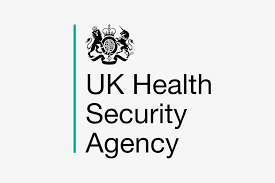
Data published recently by the UK Health Security Agency (UKHSA) show reported TB notifications in England increased by 11% in 2023 compared to the previous year.
There were 4,855 notifications of the disease in 2023, compared to 4,380 in 2022.
Leicester also became the local authority district with the highest TB rates in England, with 40.7 notifications per 100,000 population.
However, England remains a low incidence country for TB, with a rate of 8.5 notifications per 100,000 population. This is lower than the peak seen in 2011 when they were 15.6 notifications per 100,000 population.
Overall, the increase in notifications was seen in both UK born and non-UK born populations with 80% of all notified TB cases in 2023 in people born outside the UK. The most common countries where non-UK born TB cases came from were India, Pakistan, Nigeria, and Romania.
Deborah Watson, TB lead and consultant in public health at UKHSA East Midlands, said: “TB is curable and preventable, but the disease remains a serious public health issue in England and is of concern in areas with high or rising rates of TB such as Leicester.
“If you have moved to England in the last five years from a country where TB is more common, please be aware of the symptoms of TB so you can get tested and treated through your GP surgery.
“Not every persistent cough, along with a fever, is caused by flu or COVID-19. A cough that usually has mucus and lasts longer than 3 weeks can be caused by a range of other issues, including TB. Please speak to your GP if you think you could be at risk.”
TB is the world’s leading cause of death from a single infectious agent, having surpassed coronavirus (COVID-19). It is a bacterial infection that most frequently affects the lungs, which is when it is infectious. The WHO estimates that 10.8 million people were ill with TB in 2023, a 7% increase from 2020.
Symptoms of TB include:
- a cough that lasts more than 3 weeks
- high temperature
- drenching night sweats
- loss of appetite
- weight loss
TB can also be found in other parts of the body beside the lungs, with symptoms including swollen glands and joints. It can be treated with a long course of antibiotics but can be serious, particularly if not treated.
Rob Howard, Director of Public Health at Leicester City Council, said: “TB bacteria can lie dormant in the body for many years – something known as latent TB - without making you sick. Fortunately, in Leicester we have a simple test that can check whether you have dormant TB for people who:
- Have entered the UK within the past 5 years
- Have lived in sub-Saharan Africa or a country with TB rates higher than 150 per 100,000 population for at least 6 months.
- Are between 16 and 35 years of age.
“If you think this applies to you, please contact your GP who can make sure you get this test. If you do test positive, free treatment is available to prevent you from becoming ill and developing active TB, which can cause severe illness and is infectious to others.
“We also continue to work with partners including UKHSA, NHS England and Leicester, Leicestershire and Rutland ICB on a TB strategy, which sets out steps to improve the prevention, detection and control of TB, along with increasing capacity in the TB workforce.”
A TB test for infectious TB in the lungs is part of the visa requirements for anyone coming to stay in the UK for six months or more if they are coming from certain countries where TB is common. The number of people screened before entry to the UK doubled in 2023 to 1,059,309 compared to 2021. 505 people were diagnosed with pulmonary TB by this process and could not enter the UK until they had completed treatment.
However, the bacterium that causes TB can also lie dormant for many years – something known as latent TB. To detect people with latent TB infection, a testing and treatment programme is in place in higher incidence areas of England for new arrivals from higher incidence countries. There was a 98.4% rise in the number of people tested through the NHS England Latent TB Infection (LTBI) programme in 2023 (34, 680 people compared to 17,484 in 2022. 15.1% of people tested positive for LTBI.
Tuberculosis continues to be associated with deprivation and the infection is more common in large urban areas. For those born in the UK, TB is more common among those who experience homelessness, drug and alcohol dependence and have had contact with the criminal justice system.
Although numbers remain low, there was an increase in drug-resistant infections requiring longer and more complex treatment. Of lab confirmed TB notifications in 2023, 2.4% were multi-drug resistant. UKHSA has a Whole Genome Sequencing diagnostics programme in place, which means that we can diagnose drug resistance much more quickly than with traditional methods, helping people get the most effective treatment sooner.
UKHSA is working with partner organisations to advance TB treatments by assessing the effectiveness of both new therapeutics and vaccines to improve the prevention, detection, and control of TB in England.
More information on the symptoms of TB and what to do can be found here.

 Derbyshire parents find out about their child's infant, primary or junior school place for September
Derbyshire parents find out about their child's infant, primary or junior school place for September
 Chamber says that although inflation has fallen, price pressures remain]
Chamber says that although inflation has fallen, price pressures remain]
 Derbyshire council allocates over £13m of funding for SEND school projects and inclusion
Derbyshire council allocates over £13m of funding for SEND school projects and inclusion
 Derbyshire highways chief defends efforts to beat potholes after minister criticises council
Derbyshire highways chief defends efforts to beat potholes after minister criticises council
 Appeal for witnesses after two men are robbed in Long Eaton
Appeal for witnesses after two men are robbed in Long Eaton




